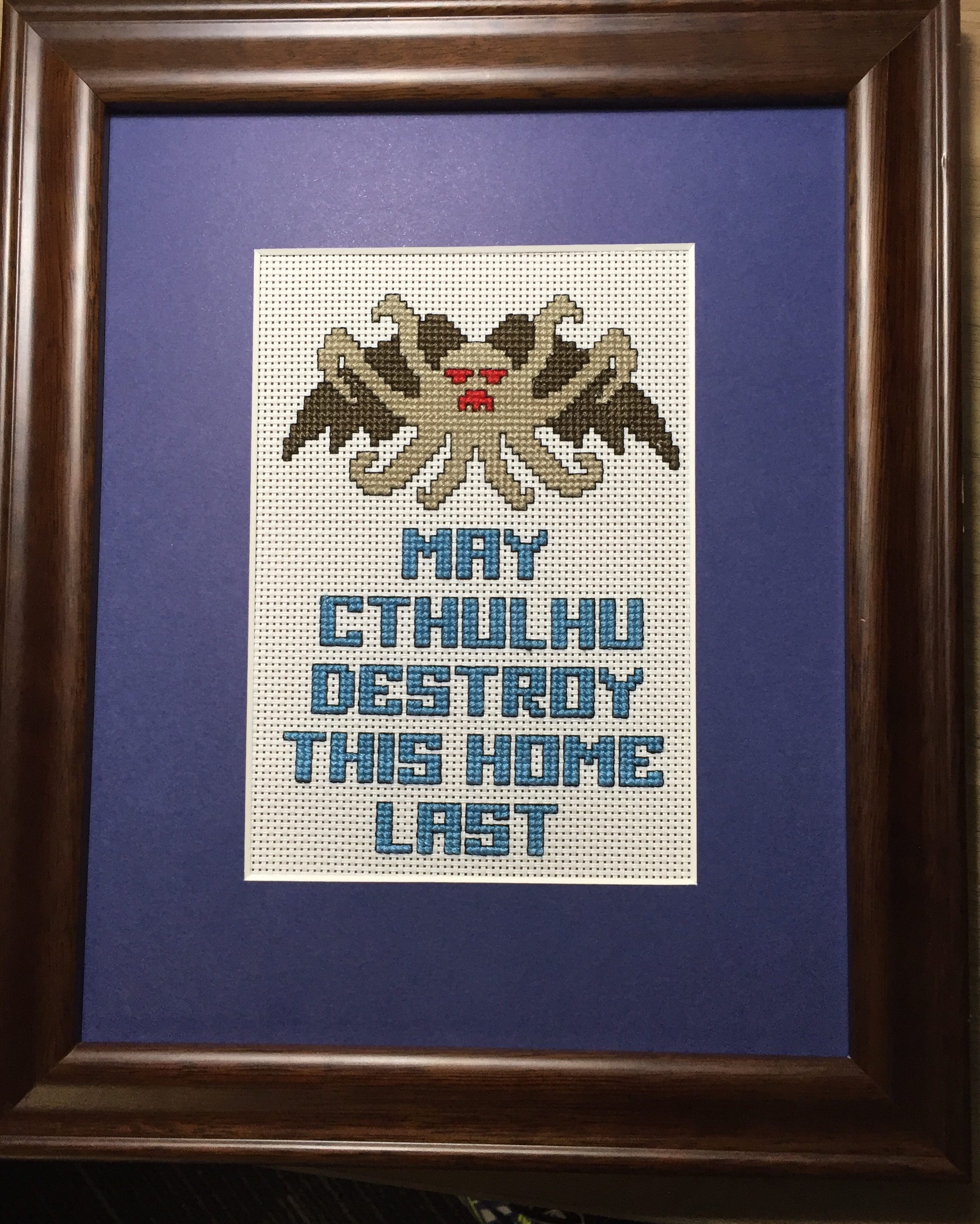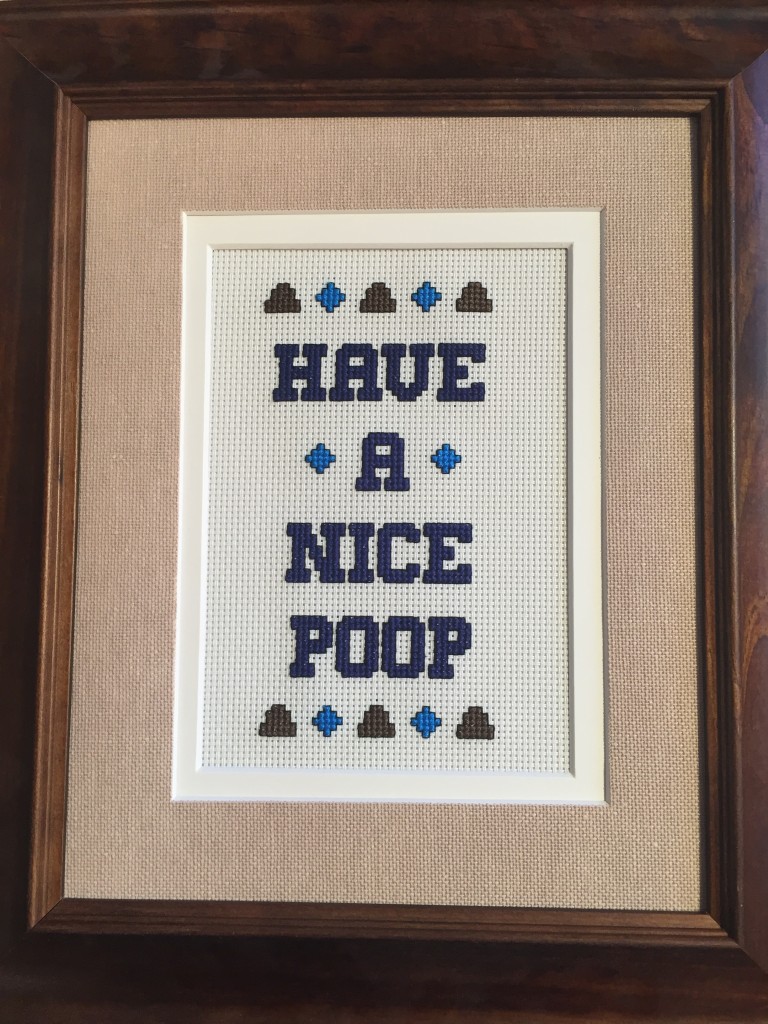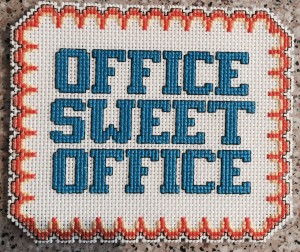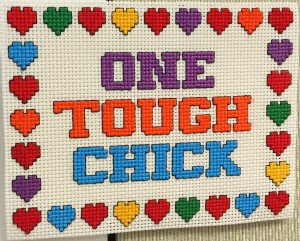Verbiage
A few days ago, I had the opportunity to spend quite a bit of time chatting with a 29-year-old programmer coworker. During our chats, he mentioned that in addition to his day job, he and his wife ‘have three startups.’ I gather that these are mobile applications that he has developed and deployed to the app store. Furthermore, he explained, while he didn’t really expect any of those projects to ever turn into anything, he had hopes that he would make some money off of one eventually.
My coworker’s use of the word ‘startups’ really struck me. Based on my understanding of what he and his wife are doing, I never in a million years would have described them as ‘startups.’ I would describe them maybe as ‘side projects’ or ‘small businesses’ but not ‘startups.’ The fact that this usage struck me so strongly made me think that he means something very different than I understand in the term ‘startup.’
I took this question to Facebook, and Susan Brumbaugh, who was my partner in similar extracurricular work back in the day, provided the clue that I think explains my puzzlement. Back when Susan and I were in a similar situation, our primary motivation for our side projects was learning, not money. Don’t get me wrong; we charged an hourly rate for some of the work that we did for others, but we also undertook a lot of technical projects solely for the sake of learning and working together.
So, maybe basic motivation explains my coworker’s use of ‘startups.’ Maybe he is more directly motivated by the potential to make money than we were.
Of course, this brings up the bigger question of the meaning of the term ‘startup.’ To me, you start with an idea, work on it, and maybe if it seems viable in some way, you take money from others in order to be able to put more effort in it. And if things work out, maybe you make money from it. I think that’s an ‘old school’ view of what constitutes a startup. These days, I understand, a lot of people have the goal of starting a startup. To me, they have it backwards: the business is the primary goal, the idea is a detail.
Generation gap
A couple of months ago, we bought me a bright blue 2008 Toyota Matrix. I thought it would be funny to put a ‘Blue Pill’ bumper sticker next to the Matrix badge. I’ve subsequently discovered that while most younger people get the allusion, many older people immediately think of a different blue pill. One of my neighbors thinks it’s admirable that I can be so open and playful about my ED problems**. Oops.
** NOTE OF CLARIFICATION: I intended the movie allusion. If I do have ED problems, it’s nobody’s fu***ing business.
White fragility
In regard to my previous post, On Political Correctness, what I experienced in the neighborhood Facebook groups has a name: “white fragility.” Per the linked interview:
SAB: What causes white fragility to set in?
RD: For white people, their identities rest on the idea of racism as about good or bad people, about moral or immoral singular acts, and if we’re good, moral people we can’t be racist – we don’t engage in those acts. This is one of the most effective adaptations of racism over time—that we can think of racism as only something that individuals either are or are not “doing.”
In large part, white fragility—the defensiveness, the fear of conflict—is rooted in this good/bad binary. If you call someone out, they think to themselves, “What you just said was that I am a bad person, and that is intolerable to me.” It’s a deep challenge to the core of our identity as good, moral people.
Interesting.
On Political Correctness
A few months ago, I joined a couple of neighborhood Facebook groups, and like previous times when I’ve participated in lightly moderated or unmoderated Internet discussions, I was once again shocked by people’s opinions and behaviors. You’d think I’d learn. Anyway, one of the groups was a neighborhood ‘Crime Watch’ group, and several times when recent local (thankfully, not terribly severe) crimes were discussed, some commenters immediately assumed that they were perpetrated by the [mostly Latino] workers building new homes in the area. In two of these instances, the probable perpetrators were caught (in part due to awareness raised by the Facebook page, to give credit where it’s due), and the alleged criminals turned out to be white teenagers who live in the neighborhood. So much for people’s desire to believe that the crimes were perpetrated by outsiders.
A couple of weeks ago, someone posted to the Crime Watch group a link to a news article about two accused burglars who’d been caught, wondering if they had been active in our area. The news article displayed the mugshots from both alleged criminals, and as it happens, they were both African American. Predictably, some of the first comments on the Facebook thread were pretty horrible and/or racist, in my opinion. One of those first commenters simply wrote, “Thugs.” I added a comment, “‘Thug’ is a racially charged word. Best to avoid it.” In my mind, I hadn’t openly accused the previous commenter of racism, though in truth that’s what I was thinking. Naively, I did not anticipate the pile-on that subsequently occurred. The original commenter added that she herself was Hispanic and therefore couldn’t be racist. Later came accusations of political correctness, which quickly degenerated into flat-out name-calling. It got very ugly quickly.
For weeks prior to this, I would recount to Katie the appalling narrow-mindedness I saw in discussions in the Facebook pages, and Katie would always respond by asking me why I continued to frequent them if they caused me so much grief. Fair point. The name-calling pile-on brought her point home, so I resigned from all of the groups for my own mental health.
But it has continued to bug me why I was so unprepared for the responses that I got to my last comment. A few days ago, I ran across this Youtube video, and it helped me to understand better what happened:
Here’s the heart of the Youtuber’s point (thanks to Fred Clark for the transcription):
That mindset right there is what does as much as anything to perpetuate injustice all over our society. That assumption that only a “cretin” or a monster or a bad person would ever be racist or sexist or harbor any sort of bias or prejudice.
That right there is the Big Lie. There is nothing that does more to perpetuate injustice than good people who assume that injustice is caused by bad people. That’s just not how being good works. And that’s not how being a human being works.
The truth … is that all of us, as good people, are still naturally prone to doing bad things. We all have natural tendencies toward implicit bias and prejudice and bad habits. …
I now realize that I had a different definition in racism in mind than some of my neighbors on the Facebook group. My definition is more like the one in the video: we all have biases, and even if we don’t, then those who read our words might. Therefore, it’s best to avoid terminology that might be understood as racist–even if not intended that way. The people who reacted so strongly to my comment, however, define racist as the overt, intentional racism of ‘bad people.’ Therefore, my suggestion of racism was, to them, an accusation that they are that type of person. Unmoderated internet discussions are not a good place to explain nuanced views.
Turing test
I find this interesting and depressing at the same time: developing robots to mimic handwritten letters in order to dupe people into open marketing mail that they would otherwise just toss, including varying pressure of the writing instrument, creating margins that mimic human writing, and of course, developing fonts that write the same letters in various ways.
Technical issues aside, here’s the heart of the matter:
Half the time, I’m cynical/alarmed/wearied that so many people are working so hard to make machines fool humans.
But the other half the time I’m kind of cracked up by the fact that the most avid prosecutors of Alan Turing’s sly and audacious 1950 thought-experiment have been not philosophers or computer scientists or advanced A.I. labs but … marketers. The former folks have foundered for years on the difficulties of understanding the fractal contours of human consciousness. The latter just want you to open up their damn mail. Comprehending the mysteries of human thought and behavior is hard. Emulating it? Not so much! It’s partly why Turing’s test is so unsettling: Man, are we really that easy to copy?
Mind you, this particular Blade Runner dimension of modern life could quickly diminish in relevance, because frankly, postal mail is itself declining rapidly. The amount of upright, breathing humans who regularly write letters by hand has been shrinking steadily for years. So maybe it’s not long before handwriting flips its its existential polarity. A handwritten envelope will become not a litmus test of humanity but sure-fire proof that we were sent a form letter by an impersonal database. We’ll sort through our paper mail with the inverse logic of today, tossing aside immediately all the letters addressed with pen-script (robot, robot, god, another one sent by a robot) but then pausing at the sudden, startling appearance of an envelope addressed by a dot-matrix printer.
Hmmm, we’ll say to ourselves: Now this might be real.
My furry running partner
Last spring, our beloved Golden Retriever Xena died of old age. A couple of months later, we went to the Pflugerville Animal Shelter to adopt a kitten but came home with a dog whom we named Charlie. He was somewhere under a year old when we adopted him, weighs just under 20 pounds, and is an unknown mix–our best guess is Pomeranian (due to curly tail) and Golden Retriever. It turns out that Charlie is a real athlete. I tried taking him running with me a couple months ago, and he has really taken to it. He pulls like crazy, but due to his small size, that’s not too much of a problem. To date, our longest run together has been nine miles.







